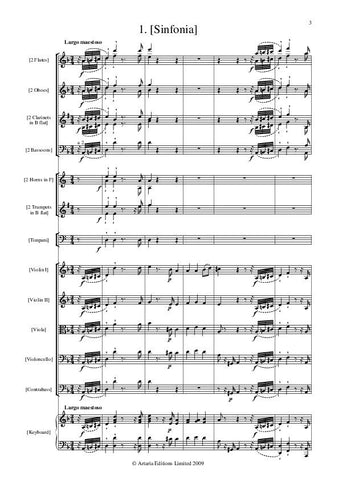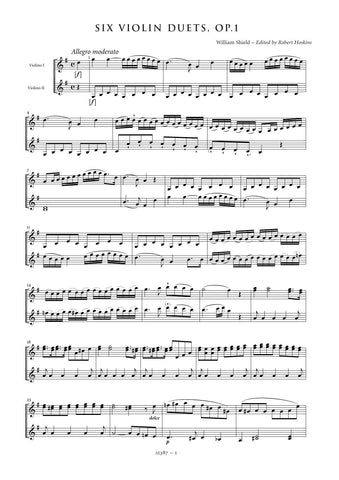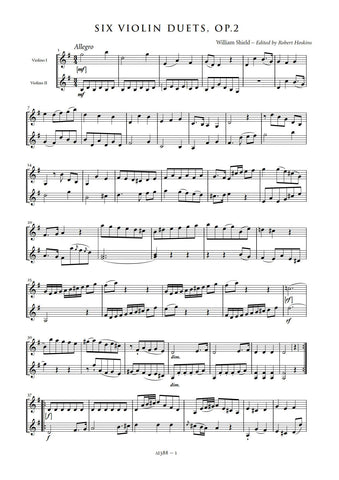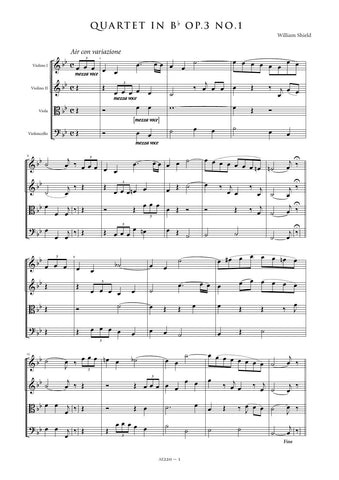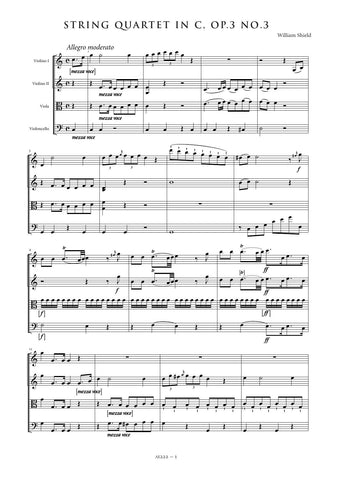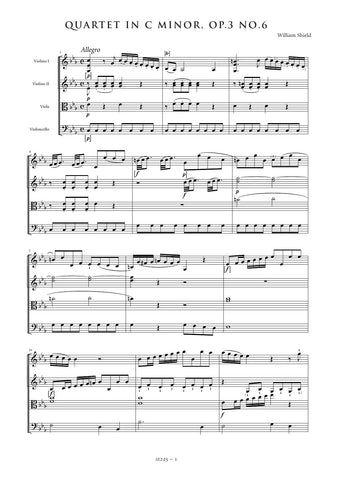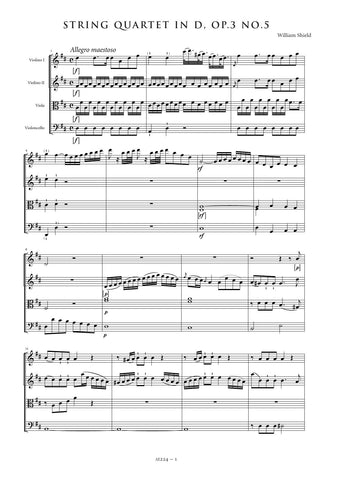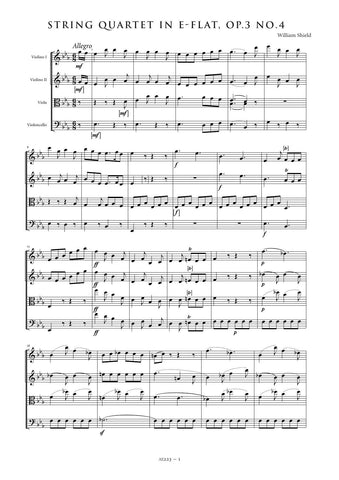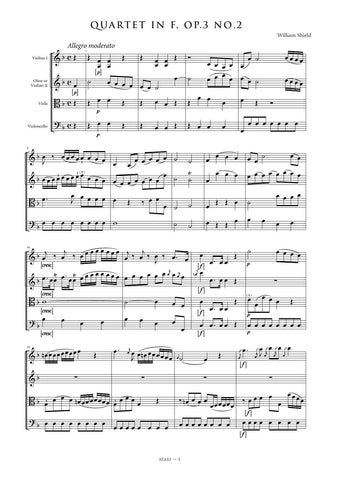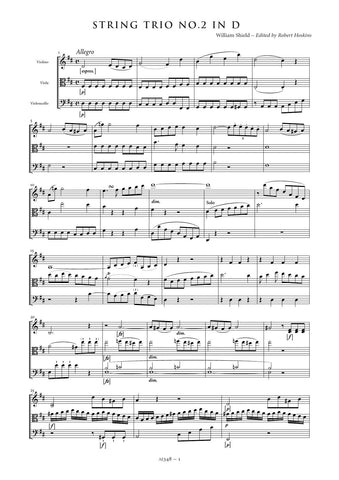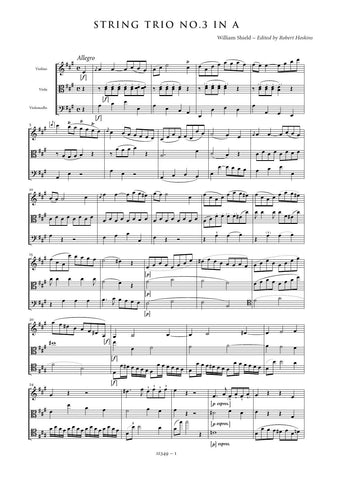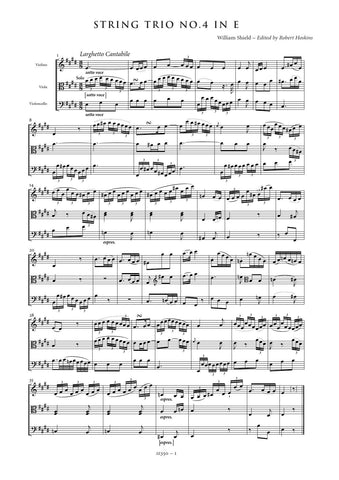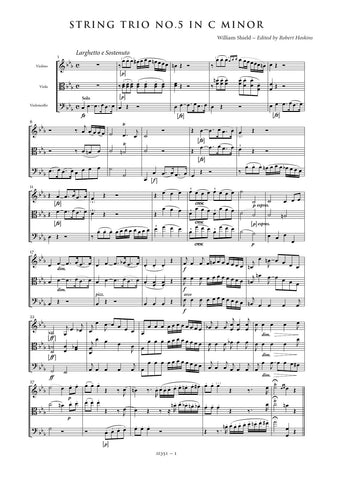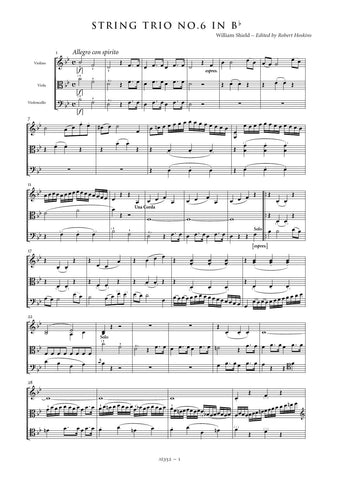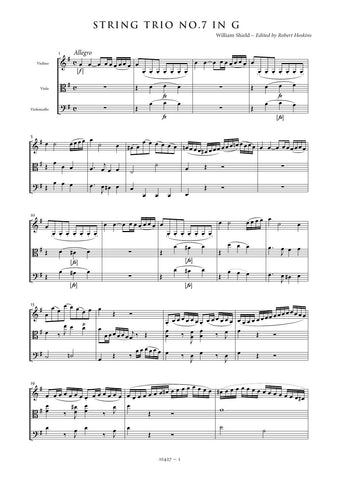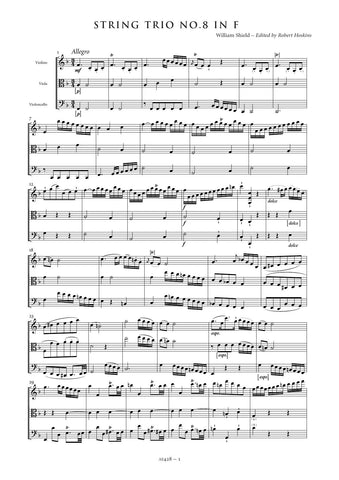Shield, William (1748 - 1829)
William Shield (1748-1829), born in Swalwell, County Durham, was taught the violin by his father but music lessons were suspended when the death of first his mother then his father saw the orphaned boy apprenticed to a Tyneside boat-builder.
Shield soon extricated himself from the apprenticeship to take up violin and composition with Charles Avison. His reputation as a concert performer soon spread, and, on the advice of Giardini, he travelled south to London where he secured the position of first violin, later first viola, in the orchestra of the King’s Theatre in the Haymarket.
The opera repertoire seems to have stimulated Shield into writing his own stage music and The Flitch of Bacon (1778), written for the Haymarket Little Theatre, was a hit. About this time the viola player William Napier became Shield’s publisher, issuing two sets of violin duets as Op.1 (1778) and Op.2 (c.1780).
Following his appointment at Covent Garden, Shield wrote a string of successful operas and pantomimes; the most popular were afterpieces, for example Rosina (1782), The Poor Soldier (1783), and The Farmer (1787), but his mainpieces, for example Robin Hood (1784), Fontainbleau (1784), and The Noble Peasant (1784) contain high-range arias of Queen of the Night-like difficulty. Haydn attended an early performance of The Woodman (1791) and he and Shield became friends.
Shield often said that he learned more about music in the company of Haydn than from any other source, and Haydn, impressed by Shield’s ability to write extended arias with colourful concertante wind parts, presented him with a copy of Pietà di me.
During 1791 Shield travelled abroad and began work on a set of string trios (1796) and two musical anthologies – An Introduction to Harmony (1800) and The Rudiments of Thoroughbass (1815). Shield, appointed Master of the King’s Music in 1817, wrote the last of all court odes.
He was buried in the cloisters of Westminster Abbey and willed his Stainer viola to George IV
View Full Biography
from $35.00
from $35.00



